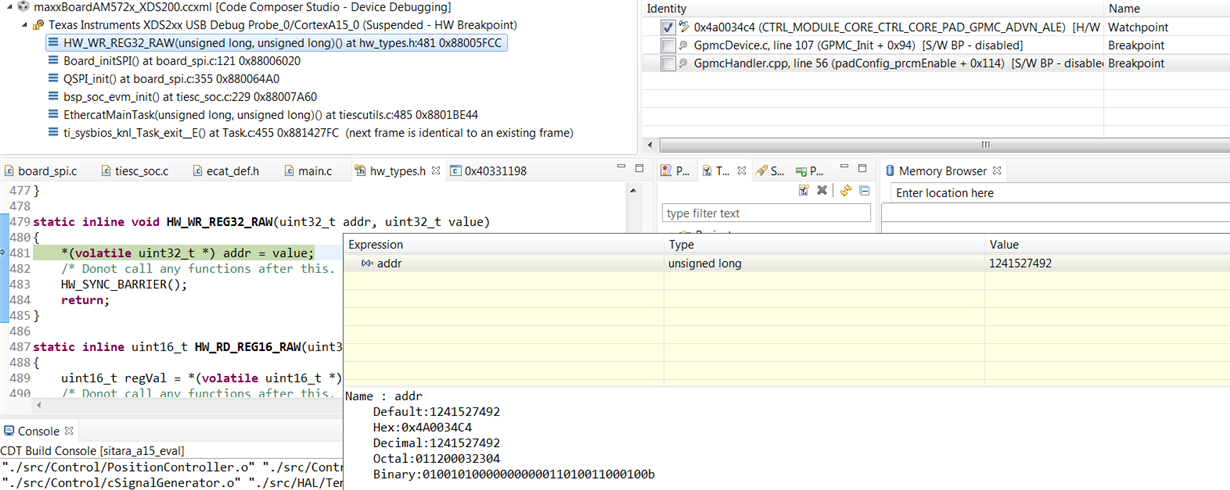Tool/software: TI-RTOS
Hi
I'm braking my head on GPMC configuration in 16-bit address/data multiplexed mode.
GPMC_ADVN_ALE is not coming out of CPU !!!
1. I set bits 9:8 MUXADDDATA to 0x2 as suggested.
2. Traced down to assembly that I write 0x28001200 to 0x50000060
3. Pin configuration
HW_WR_REG32(CSL_MPU_CORE_PAD_IO_REGISTERS_REGS+CSL_CONTROL_CORE_PAD_IO_PAD_GPMC_ADVN_ALE,0x10000);
4. CS control registers 0..6
0x28001200,
0x80881,
0x60594,
0x10857096,
0x10F1111,
0x8F0000,
0x00000f48,
What else do I miss?
Thanks
Rasty
:









